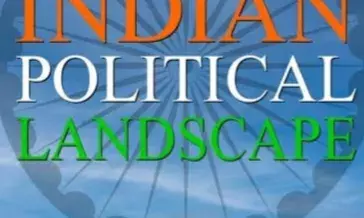India's New Political Landscape: BJP-led NDA Forms Govt, Punjab Sends Khalistan Voices to Parliament
Coalition Dynamics Test Modi-Shah While Radicals' Wins in Punjab Raise Concerns Over Sikh Separatism Revival;

A throwback to the National Front (NF) coalition of political parties led by the Janata Dal which formed the government in 1989, India enters the era of coalitions once again with the BJP-led NDA forming the government, having won 293 seats against 232 of the Opposition INDIA bloc in the 2024 Lok Sabha elections.
Speculation is rife over how hard a bargain its allies—primarily Telugu Desam Party under Chandrababu Naidu and Janata Dal (United) under Nitish Kumar—will drive as the government picks up the threads. It is, nonetheless clear that:
“It will be a challenge for PM Narendra Modi and Amit Shah who have not been used to consulting very much in running their government and I think this is going to test their ability to change their way of functioning and be more accommodative and more conciliatory within the government and also I hope with the opposition,” opines Shashi Tharoor.
For many, the idea of India has been reborn. The election results have thankfully expressed India’s yearning to defend her constitutional values. The BJP even lost Faizabad, the parliamentary seat that houses the Ayodhya Temple. Notably, it has also been trounced in Uttar Pradesh, the party’s greatest ideological heartland outside Gujerat since 2014.
This has given India’s secular-rationalists much reason to cheer for the national chessboard along with its left-right political spectrum is slated to be reset and, hopefully, the country would return to a more democratic way of functioning.
In direct contrast, Punjab continues to buck the trend. Amid the daily drama enacted by dal badlus (turncoats) and contrary to high expectations for ‘change’, the election results partly echoed the Lok Sabha polls of 2019: the Congress was ahead with 7 seats, AAP won 3, and SAD saved itself a washout with a solitary win at Bhatinda. But what most peace-loving Punjabis view as a possible threat is the electoral triumph of two independents.
Amrit Pal Singh won the ‘panthic’ Khadoor Sahib seat with a margin of 1,97,120 votes over his nearest rival, Congress candidate Kulbir Singh Zira, while Sarabjeet Singh Khalsa, son of Indira Gandhi assassin, Beant Singh, won in Faridkot by 70,053 over AAP's Karamjit Singh Anmol.
Radical Sikh preacher Amrit Pal Singh who openly campaigns for Khalistan, and Sarabjeet Singh Khalsa are now poised to make their maiden entry into Parliament. With the kind of hype that Punjab witnessed in the run-up, it should come as no surprise that, from youth to women and elderly people, everyone contributed in this election to give a thumping mandate to both men: one of whom styles himself after the dead Khalistani terrorist Jarnail Singh Bhindranwale, while the other’s father, Beant Singh, shot dead Indira Gandhi in cold blood to avenge the storming of the Golden Temple in Jun 1984. Possibly, the polling date, 1 Jun 2024, served as a distressing reminder of the tragic events and may well have served to influence the electorate in casting their ballot.
Shiromani Akali Dal (Amritsar) head and Khalistan (separate Sikh homeland) sympathiser, Simranjit Singh Mann, extended his party's support to Amrit Pal Singh. A hard-liner, Mr Mann, 79, who won the seat vacated by Punjab Chief Minister Bhagwant Mann in the 2022 by-election, this time lost, coming in third after the AAP and Congress candidates, but many view his defeat as a victory by proxy since Amrit Pal, whom many tend to view as his protégé, won.
(To be continued)
Colonel Harisimran Singh belongs to a military family based in rural Punjab.He retired after 31 years having served in regimental, staff and instructional appointments.During service he also proceeded on sabbatical to the UK for MA War Studies at King’s College London

